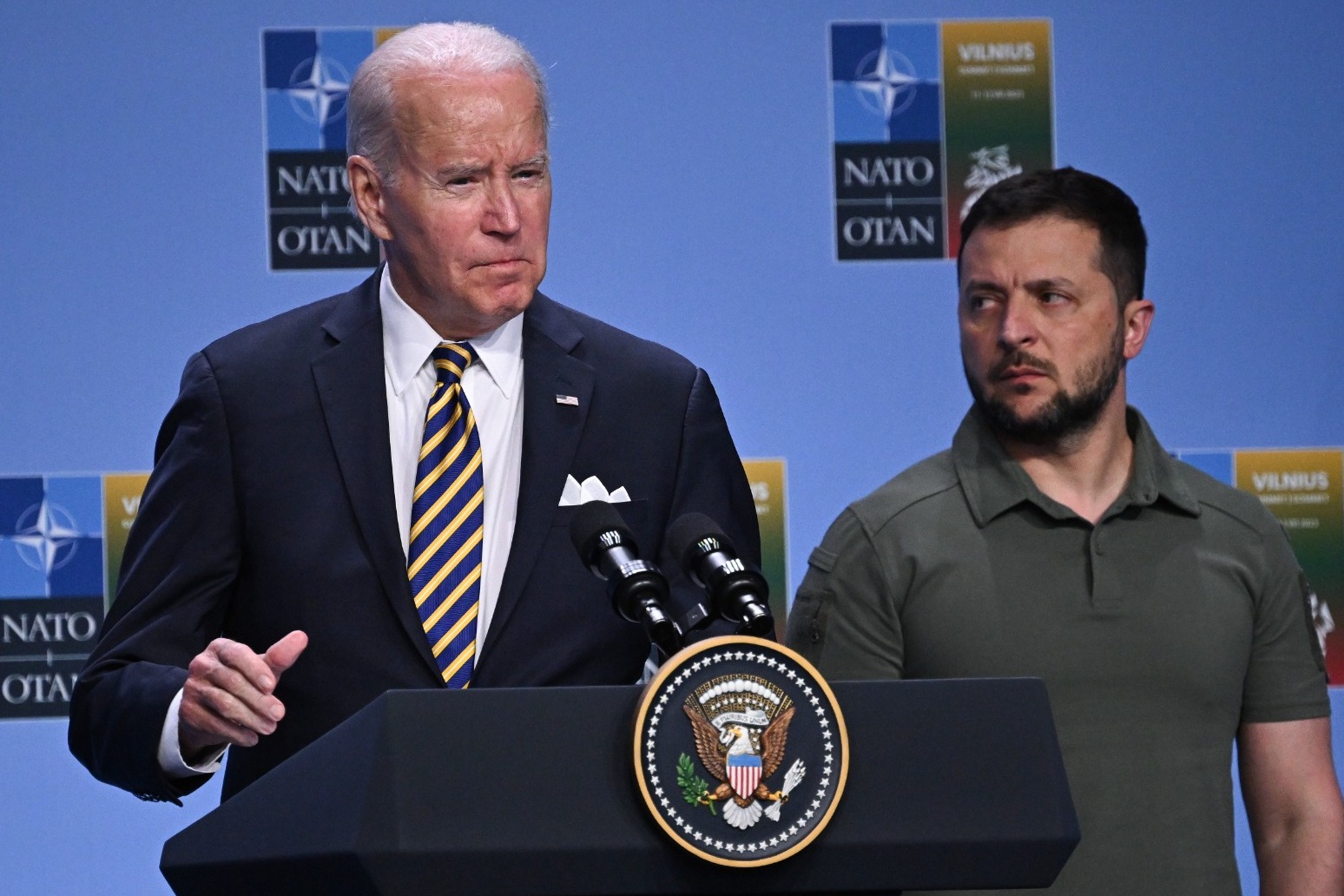
Biden approves Ukraine’s use of US-supplied long-range missiles in Russia
It's a major US policy shift and comes just before President Biden leaves office
President Joe Biden has authorised Ukraine’s use of US-supplied long-range missiles to strike inside Russia for the first time, according to AP sources.
The decision is a major US policy shift and comes as Mr Biden is about to leave office.
President-elect Donald Trump has pledged to limit American support for Ukraine and end the war as soon as possible.
The weapons are likely to be used in response to North Korea’s decision to send thousands of troops to Russia in support of President Vladimir Putin’s invasion of Ukraine, according to one source.
Ukrainian President Volodymyr Zelensky’s reaction Sunday was notably restrained.
“Strikes are not made with words,” he said during his nightly video address. “Such things are not announced. The missiles will speak for themselves.”
Mr Zelensky and many of his Western supporters have been pressing Mr Biden for months to allow Ukraine to strike military targets inside Russia with Western-supplied missiles, saying the US ban had made it impossible for Ukraine to try to stop Russian attacks on its cities and electrical grids.
Mr Zelensky’s statement came shortly after he posted a message of condolence on Telegram following a Russian attack on a nine-story building that killed at least eight people in the northern city of Sumy, 40 kilometres (24 miles) from the border with Russia.
Russia also launched a massive drone and missile attack, described by officials as the largest in recent months, targeting energy infrastructure and killing civilians. The attack came as fears are mounting about Moscow’s intentions to devastate Ukraine’s power generation capacity before the winter.
“And this is the answer to everyone who tried to achieve something with Putin through talks, phone calls, hugs, and appeasement,” Mr Zelensky said.
Some supporters have argued that the limitation and other US constraints could cost Ukraine the war.
The debate has become a source of disagreement among Ukraine’s Nato allies.
Mr Biden had remained opposed, determined to hold the line against any escalation that he felt could draw the US and other Nato members into direct conflict with Russia.
But North Korea has deployed thousands of troops to Russia to help Moscow try to claw back land in the Kursk border region that Ukraine seized this year.
The introduction of North Korean troops to the conflict comes as Moscow has seen a favourable shift in momentum.
Mr Trump has signalled that he could push Ukraine to agree to give up some land seized by Russia to find an end to the conflict.
As many as 12,000 North Korean troops have been sent to Russia, according to US, South Korean and Ukrainian assessments.
American and South Korean intelligence officials say North Korea also has provided Russia with significant amounts of munitions to replenish its dwindling weapons stockpiles.
Mr Trump, who takes office in January, spoke for months as a candidate about wanting Russia’s war in Ukraine to be over, but he mostly ducked questions about whether he wanted US ally Ukraine to win.
He also repeatedly slammed the Biden administration for giving Kyiv tens of billions of dollars in aid.
His election victory has Ukraine’s international backers worrying that any rushed settlement would mostly benefit Mr Putin.
America is Ukraine’s most valuable ally in the war, providing more than 56.2 billion dollars in security assistance since Russian forces invaded in February 2022.
Worried about Russia’s response, however, the Biden administration has repeatedly delayed providing some specific advanced weapons sought by Ukraine, only agreeing under pressure from Ukraine and in consultation with allies, after long denying such a request.
That includes initially refusing Mr Zelensky’s pleas for advanced tanks, Patriot air defence systems, F-16 fighter jets, among other systems.
The White House agreed in May to allow Ukraine to use the ATACMS missile system for limited strikes just across the border with Russia.
Published: by Radio NewsHub